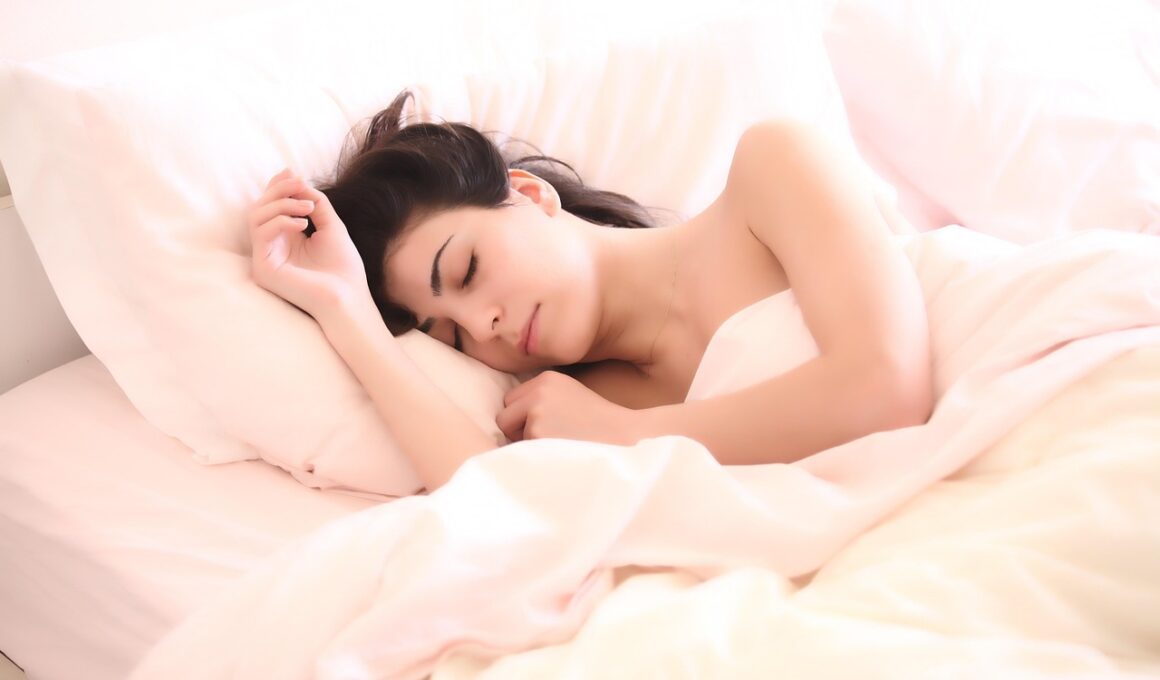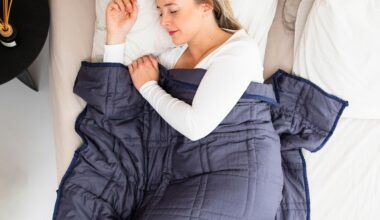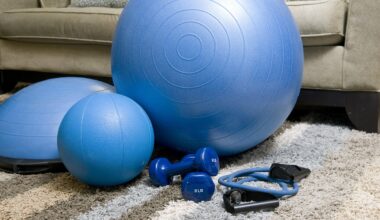Understanding Sleep Metrics: A Deep Dive into Sleep Tracking Data
In the modern era of health technology, understanding sleep metrics is vital for optimal recovery and well-being. Sleep tracking devices have revolutionized how we monitor sleep patterns, giving us insights into duration, quality, and efficiency. These metrics allow us not just to track how long we sleep but also to evaluate whether that sleep is restful or plagued with interruptions. Sleep prolongs our bodies’ restorative processes, so understanding the quality of sleep becomes a key factor in enhancing our health. Tracking devices usually rely on advanced sensors that recognize movement and heart rates, which is fundamental for calculating those metrics accurately. Brands like Fitbit, Garmin, and WHOOP have emerged as leaders in the market, providing a variety of products tailored for every sleep concern. By analyzing the collected data, users can develop personalized sleep strategies to enhance recovery and daily performance. Moreover, there is a growing emphasis on the integration of sleep tracking data with lifestyle information to create holistic health profiles, making these devices indispensable aids in our quest for better sleep and recovery efficiency.
The Importance of Sleep Duration
Understanding sleep duration is crucial when assessing overall health. Sleep tracking devices provide a detailed breakdown of hours spent in peaceful slumber versus the total time in bed. For adults, the recommended sleep duration is between seven to nine hours per night for ideal recovery. Sleep studies indicate that insufficient rest can lead to numerous health challenges, such as obesity, diabetes, and mental health disorders. Many tracking devices clearly delineate light, deep, and REM sleep stages, offering insights into whether users meet these essential durations. Light sleep is vital for transitioning between wakefulness and deeper sleep, while deep sleep supports physical recovery and REM sleep aids in memory consolidation. By viewing data trends over time, users can identify patterns affecting their sleep quality and address any difficulties via lifestyle adjustments. Furthermore, sharing this sleep data with healthcare professionals can foster discussions that lead to personalized treatment suggestions. Devices often feature reminder systems that encourage better sleep hygiene, helping individuals establish a relaxing nightly routine, which is essential for maintaining optimal sleep duration.
Another critical aspect is sleep quality, monitored through various metrics such as interruptions, breathing patterns, and heart rate variability. Sleep quality is not merely about total hours spent asleep but rather whether the sleep attained is restorative. Many tracking devices come with advanced sensors that can detect disruptions and confirm how often you experience deeper sleep stages versus lighter ones. While short periods of light sleep can be beneficial, extended disruptions can significantly harm overall health. Evaluating sleep quality can guide users to make lifestyle changes that enhance their nightly rest. Factors such as caffeine consumption, device usage before bed, and even daily stress levels can affect how well we sleep. By aggregating sleep quality data over extended periods, individuals can pinpoint specific days or events that lead to unrestful nights. Noting these correlations helps in developing effective strategies to improve sleep quality over time, essential for maintaining mental clarity and physical health. Consequently, sleep tracking devices are tools that assist users in enhancing both sleep quality and their understanding of the relationship between lifestyle choices and their nocturnal experience.
The Role of Technology in Sleep Improvement
Modern sleep tracking devices integrate with mobile applications, providing real-time feedback and long-term analysis on sleep behavior. Many users appreciate having this information at their fingertips, allowing for instant comparisons of data across nights and weeks. These insights are essential to identify successful trends and see what changes positively influence sleep patterns. A notable feature of many sleep apps includes journaling, allowing users to log how they feel upon waking up and correlate those feelings with their tracked sleep data. Such documentation not only inspires accountability but also sheds light on aspects requiring enhancement. Health professionals increasingly endorse these devices, as they offer quantifiable data pointing to precise sleep issues. Combining wearable technology with health metrics cultivates better sleep hygiene and empowers users to take proactive measures. Additionally, many devices include gentle wake-up features, aligning alarm times with sleep cycles for a smoother waking experience. This technological advancement boosts the feeling of restfulness, enhancing overall recovery capabilities and daily performance.
Interpreting sleep data can sometimes be confusing, particularly for inexperienced users attempting to navigate a wealth of information. Tracking devices often require education in understanding graphs and metrics presented. Most straightforward insights include total sleep time, time spent awake, and the number of restful cycles. People are also encouraged to learn about common benchmarks in their sleep statistics. Comprehensive stats can lead to varied interpretations depending on personal lifestyles and goals, atop the intended results from using these devices. Each person may have unique ideal sleep patterns based on age, physical demands, or underlying health issues. Resources and community forums can offer shared experiences and advice on how to decipher the multitude of data points available. This guidance can significantly enhance its effectiveness for users. Moreover, engaging with sleep specialists or utilizing advice from the manufacturers can further illuminate the context behind sleep metrics. Developing a keen understanding of one’s sleep data empowers users to make informed decisions that propel them toward cognizance of their individual sleep needs.
Adapting to Personal Needs
Customizing sleep tracking experiences to fit personal needs and preferences is vital for enhancing the practicality of these devices. Each individual might experience varying requirements based on a multitude of factors. Some popular sleep tracking features let users assess their sleep environment conditions like temperature, noise levels, and light exposure through various sensors. These crucial conditions significantly affect sleep quality. By understanding the correlations between these environmental factors and sleep metrics, users can implement changes to optimize their sleep surroundings for improved rest. Adjusting room temperature, eliminating distractions, and selecting sleep-friendly bedding can all contribute towards a healthier sleep atmosphere. In some cases, it’s also effective to set alarms that coincide with sleep cycles for more gentle wake-ups. As users experience continuing progress, they can set more precise goals for improvement, making the experience both rewarding and usable. Such personalized approaches allow users to feel more connected to their devices, as it supports their journey to better nights and more rejuvenating days. Therefore, centered customization plays an integral role in maximizing the benefits of sleep technology.
In conclusion, understanding sleep metrics through tracking devices opens pathways to better health outcomes rooted in recovery. With the ability to analyze different facets of sleep, users gain critical insights into what constitutes both high-quality and restorative rest. These technologies empower individuals to adopt data-backed changes that positively influence sleep duration and quality. By leveraging this technology effectively, people’s bodies can achieve optimal recovery levels, boosting their overall performance. A significant emphasis throughout this exploration has been the interplay between lifestyle choices and sleep metrics, reinforcing the importance of sleep hygiene. Addressing behaviors such as device usage before bedtime and caffeine intake can supplement sleep improvements. In this digital age, sleep is a valuable asset, essential for health and well-being. Sleep tracking offers personalized insights that cater directly to unique needs, ultimately enhancing personal recovery. The potential for sleep technology to revolutionize how we perceive and experience sleep cannot be overstated. As awareness grows, more people can embrace these devices and their extraordinary potential, leading to healthier nights and brighter days.
![]()


